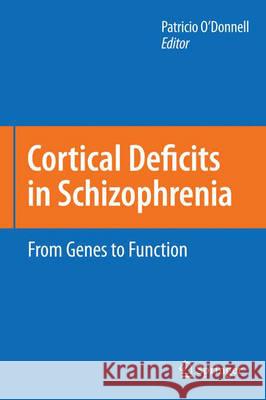Cortical Deficits in Schizophrenia: From Genes to Function » książka
Cortical Deficits in Schizophrenia: From Genes to Function
ISBN-13: 9780387743509 / Angielski / Twarda / 2007 / 239 str.
The genetics of schizophrenia have taken the driver seat in the research - lated to this disorder in recent years. For a long time, it had been known that sharing genes with someone affected with schizophrenia conferred a 50% chance of acquiring the disease. Although this is fifty times the incidence in the normal population, it was evident that genes could not explain all factors involved. At best, one could think of a combination of gene traits conferring predisposition for the disease. Now, it is evident that although there are no genes that individually confer a strong liability, several candidate gene alleles do confer some risk, and perhaps a combination of genes could cause the emergence of symptoms in this multi-faceted psychiatric condition. As the research on predisposing genes soars, it is becoming clear that we need to be able to identify cellular processes the genes control and to provide pat- physiological scenarios that could link those cellular phenomena with sy- toms. In this book, we have chosen to elaborate on that link. The contributions to this book have been requested to reflect the current state of the connection between schizophrenia genetics and pathophysiology. The book opens with a chapter by Paul Harrison highlighting the several convergence points among the diverse schizophrenia-related genes.











